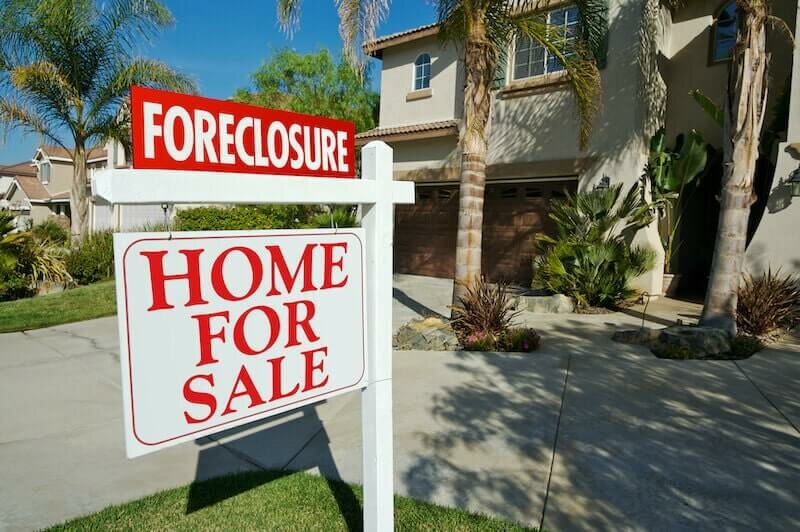One of the sad realities facing US homeowners over the last 15 years has been the mainstreaming of financial hardship for many and homes going into foreclosure. For many, the foreclosure process has become inevitable as the pandemic and economic realities have forced missed mortgage payments and led to many homeowners asking:
Can I sell my home if it is a foreclosure or pre-foreclosure?
For many, the answer is “yes.” You should try to work something out with your lender, but if they have moved to foreclose, you can still sell your home through a real estate agent and on your own.
If your lender is looking to foreclose and has initiated the foreclosure process, or if you are facing a challenging financial situation and are looking to sell a house fast in Pennsylvania, you will find the following information very useful.

About Pre-Foreclosure and Foreclosure
What causes a foreclosure? The simple answer is extreme financial hardship. Bills pile up and payments get missed. After a few missed mortgage payments, mortgage holders enter a pre-foreclosure stage. For the bank to initiate pre-foreclosure proceedings, you must be 120 days delinquent in your mortgage payments.
Pre-foreclosure is the initial phase a home loan lender will take to begin the legal process of foreclosing on a property. The lender will send the borrower a notice of default informing the borrower that the contract terms are violated and the lender is pursuing legal action toward a foreclosure sale.
You do not lose your home in pre-foreclosure. The best way to consider the notice of default is that it is a final warning before the lender initiates a foreclosure notice. You still have a few options if you receive a notice of a foreclosure auction.
Loan Modification
A loan modification happens when the mortgage company extends the length of your loan to reduce your monthly payments. A lender may also consider lowering the interest rate to move your missed payments to the end of the loan.
The mortgage loan modification does not absolve you of your mortgage debt. It extends it and lowers the total amount you pay each month. A bank may opt for a modification to avoid the hassle of selling the home, including any management or closing costs.
Your bank may also ask you to speak to a financial counselor. They can show you how to avoid foreclosure and give you tips on managing your money. They also can help you decide if trying to stay in the home is the best financial decision.
One key to securing a favorable loan modification is to show the bank that you are serious about keeping up with your payments, have the means to do so, and while you got behind, you will not let that happen again. A bank usually extends a modification offer because it is much less expensive to pursue that route than foreclosing on a home.
Deed in Lieu of Foreclosure
A Deed in Lieu of Foreclosure is when the homeowner hands over the deed to the home, settles the debt, and you walk away owing nothing but having given up your home.
Short Sale
If the modification and Deed in Lieu of Foreclosure do not work, your next option might be a short sale. A short sale means selling the home at the price of what you owe the lender. If the lender agrees, the homeowners bring in a real estate agent, set the sale price, and initiate a formal sale process with potential home buyers for your home.
In a short sale, the realtor will review home values in your community and list the home sale at less than the loan amount and usually less than market value. Once sold, the lender gets paid off whatever the sale brought in, and you are released from the loan.
Foreclosure Process and Laws
The mortgage lender will do all it can to avoid foreclosure proceedings. The notice of default has a timeframe of 90 days, and then the mortgage holder will issue a Notice of Sale. The Notice of Sale will get published in a newspaper in the county of the foreclosed home. The homeowner will receive a certified letter of notification.
The bank must get a deficiency judgment if the mortgage terms do not have a “power of sale” clause. If the mortgage does have a power of sale clause, the mortgage lender can initiate a sale on the home as part of a non-judicial foreclosure.
Ultimately, if you cannot work something out and pay off the remaining balance of the mortgage, after some time your home will be sold at auction, and a new owner will assume responsibility for the property. You will receive a letter stating the date you must move out.
In many cases, if the mortgage holder is a third party, you can negotiate moving costs with the company that wants you out. The amount is negotiable, but you can usually negotiate several thousand dollars depending on where you live. The caveats are that you must vacate by the agreed-upon date, and the home must be in fairly good condition.
You should make sure to check your local and state laws regarding foreclosure. Many have regulations regarding the foreclosure process that differ from the process a mortgage company would prefer. Depending on where you live, the rules are often favorable to the homeowner, particularly if you can show financial hardship.
Can You Sell Your House if It’s in Foreclosure?
Yes, in most cases. You have until your home goes up for auction to sell the property. If you get the mortgage lender’s approval and opt for a short sale, the lender will usually suspend any auction processes pending the sale of the property.

How to Sell Your House in Foreclosure
The easiest way is to contact a company that buys homes. We buy houses Chester residents are looking for, for instance, that are often pre-foreclosure or almost in foreclosure. We make an offer in cash for homes Philadelphia locals are interested in.
After that, going through a realtor is the next easiest way to sell a home in pre-foreclosure or foreclosure.
If you need to avoid realtor costs, you can try and list and sell it yourself, but be aware the lender may not approve of that and may not stop the foreclosure from moving forward.
Documentation Needing to Sell a House in Foreclosure
If you are selling your home the traditional way, even though you are in foreclosure, you must have all the standard real estate documents needed for a legal transaction.
If you are pursuing a short sell to cover your mortgage, you must have a letter from the bank stating they approve of your actions. The paperwork is for your protection as well. With that letter, it is more difficult for the bank to renege on any agreement.
The Process for Selling a House in Foreclosure
If you plan to sell a foreclosure home, your first step is to notify the lender and let them know your plans. Letting the lender know your plans will get them to suspend the auction.
Once the auction and foreclosure get delayed, you proceed to sell the home.
The key is communicating with your mortgage lender and ensuring they understand what you are planning.
Conclusion
Foreclosure is never fun, but you do have options to get out from under your mortgage or even rectify the situation with your lender. If you cannot modify your loan, you should look at selling the home to cover the costs. Make sure you discuss it with the bank and get them on board with your plans.

 Call Us!
Call Us!